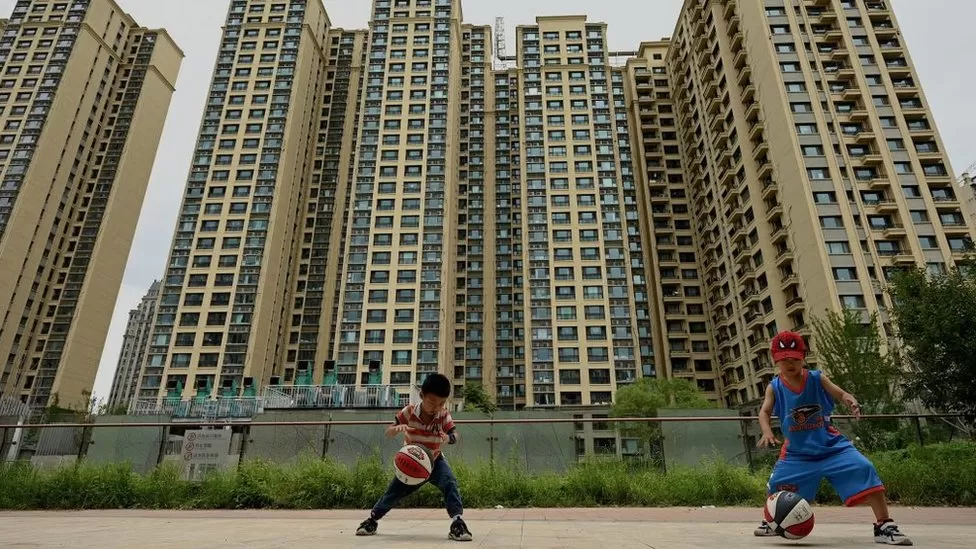Shares in the crisis-hit Chinese developer plunge by 80%

Over the past three years, Beijing has cracked down on property firms, causing the shares to lose more than 99% of their value.
The world’s second largest economy is threatened by a real estate market crisis centered around Evergrande.
For the first half of the year, the company reported a 33bn yuan ($4.5bn; £3.6bn) loss.
However, it was an improvement over the 66.4bn yuan loss it reported a year earlier.
In a filing to the Hong Kong Stock Exchange, Evergrande said the company had taken a number of steps to improve its liquidity position and financial position.
Compared to a year ago, the company’s revenue for the first six months of this year increased by 44% to 128.2 billion yuan. In the same period, its cash stockpile fell by 6.3%.
Since March last year, Evergrande shares have been suspended from trading.
At this point, policymakers need to prevent financial contagion and limit spillover into the overall financial system, says Qian Wang, chief Asia Pacific economist at Vanguard.
“Policymakers must provide further liquidity and credit support to the economy and real estate sector,” she said. China’s property market problems have added to concerns about its post-pandemic recovery.
On Monday, China halved a 0.1% tax on stock trading to boost investor confidence.
After cutting one of its key interest rates for the second time in three months due to declining exports and weak consumer spending, the country’s central bank made the move.
Hong Kong and mainland China’s major share indices rose after the news.
Evergrande revealed last month that it lost 581.9bn yuan between 2021 and 2022.
In its first six months of the year, Country Garden, one of China’s largest property developers, warned that it could lose up to $7.6 billion (£6 billion).
Moody’s downgraded the company’s rating due to “heightened liquidity and refinancing risks”.
After new rules to limit the amount of money big real estate firms could borrow were introduced in 2020, China’s real estate sector was rocked.
As Evergrande expanded aggressively to become one of China’s largest companies, it accumulated debts of more than $300bn.
It failed to make interest payments on around $1.2 billion in international loans in 2021.
After defaulting on debt repayments, Evergrande is renegotiating its agreements with creditors.
In New York, the company filed for Chapter 15 bankruptcy protection earlier this month.
In Chapter 15, a foreign company’s US assets are protected while its debt is restructured.
The financial problems of Evergrande have rippled throughout the country’s property industry, with a series of other developers defaulting on their debts and leaving unfinished construction projects.
